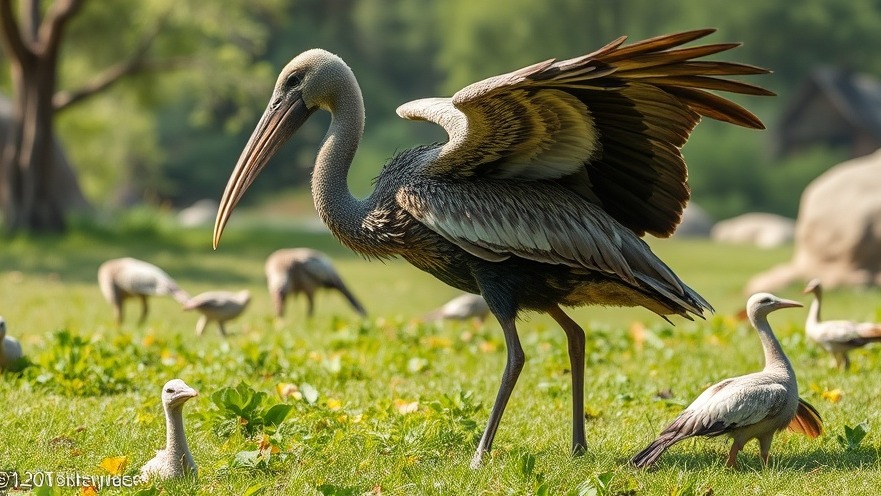
Resurrection of the Dodo: A Scientific Breakthrough?
Colossal Biosciences, a Texas-based biotech firm, has recently secured an impressive $120 million in funding, propelling its ambitious project to revive the dodo bird, an iconic species that vanished from our world in the 17th century. This funding represents a pivotal moment not just in the niche of de-extinction but also in the broader landscape of biotechnology. With advancements in genetic research, the dream of bringing back extinct wildlife is inching closer to a reality.
The Road to Reviving Extinct Species
Colossal operates at the forefront of genetic engineering, utilizing CRISPR technology to attempt the resurrection of various extinct species, starting with the dodo. Should this endeavor prove successful, it could redefine conservation efforts, illuminating pathways to reverse the damage done to our planet’s biodiversity. The concept isn't merely science fiction; it posits practical applications that lie within reach.
Contextualizing the Impact: More than Just Birds
This venture goes beyond the dodo. Colossal's work could potentially assist in combating the current extinction crisis. By reviving extinct animals, researchers can study these species' genetics to better understand biodiversity and how to preserve existing endangered species. It encapsulates the intersection of tech innovation and environmental conservation, embracing the responsibility to safeguard our planet's biological heritage.
Local Support for Bold Ventures
Austin's entrepreneurial ecosystem has played a significant role in nurturing Colossal's growth. The Texas capital is renowned for its vibrant tech scene and has become a hub for startups specializing in groundbreaking technologies. Austin's commitment to innovation, bolstered by supportive resources such as the Austin Chamber of Commerce and local business networks, showcases how a community can uplift revolutionary ideas.
The Broader Cultural and Economic Implications
The revival of the dodo could have cultural ramifications. As society becomes increasingly interested in the ethical implications of de-extinction, public discourse around biodiversity and conservation might shift dramatically. Increased awareness can lead to stronger support for conservation initiatives today, igniting a renaissance in sustainable practices throughout the Austin community and beyond.
Future Predictions: What Comes Next?
As Colossal moves forward, the future looks promising. If the dodo's revival succeeds, it could pave the way for other projects aiming to restore extinct species, such as the woolly mammoth or the passenger pigeon. These lofty goals align with increasing venture capital investment in biotech—an indication that investors see potential not just in profitability but in social responsibility and ecological balance.
Challenges on the Horizon
While the project shows excitement, it is not without its challenges. Ethical questions arise regarding the implications of bringing back a species that has been gone for centuries. There are concerns about habitat viability and the ecological impact of reintroducing an extinct species into modern ecosystems. Ensuring that biotechnology progresses responsibly will take careful consideration and collaboration among scientists, ethicists, and the public.
Engaging the Community
For those interested in Austin's thriving entrepreneurial landscape, opportunities abound to engage with and support exciting startups like Colossal. Events hosted by the local Chamber of Commerce and various business networks offer platforms for collaboration, mentorship, and investment. As the city nurtures its innovation hub ethos, supporting businesses that prioritize both profit and environmental stewardship ensures that progress benefits everyone.
To truly capitalize on this momentous shift in the conversation around de-extinction and conservation, it's essential for the community to involve itself, whether through enhancing awareness, participating in discussions, or supporting local entrepreneurial ventures. Now more than ever, successful entrepreneurship is interconnected with global environmental stewardship.
 Add Element
Add Element  Add Row
Add Row 



Write A Comment